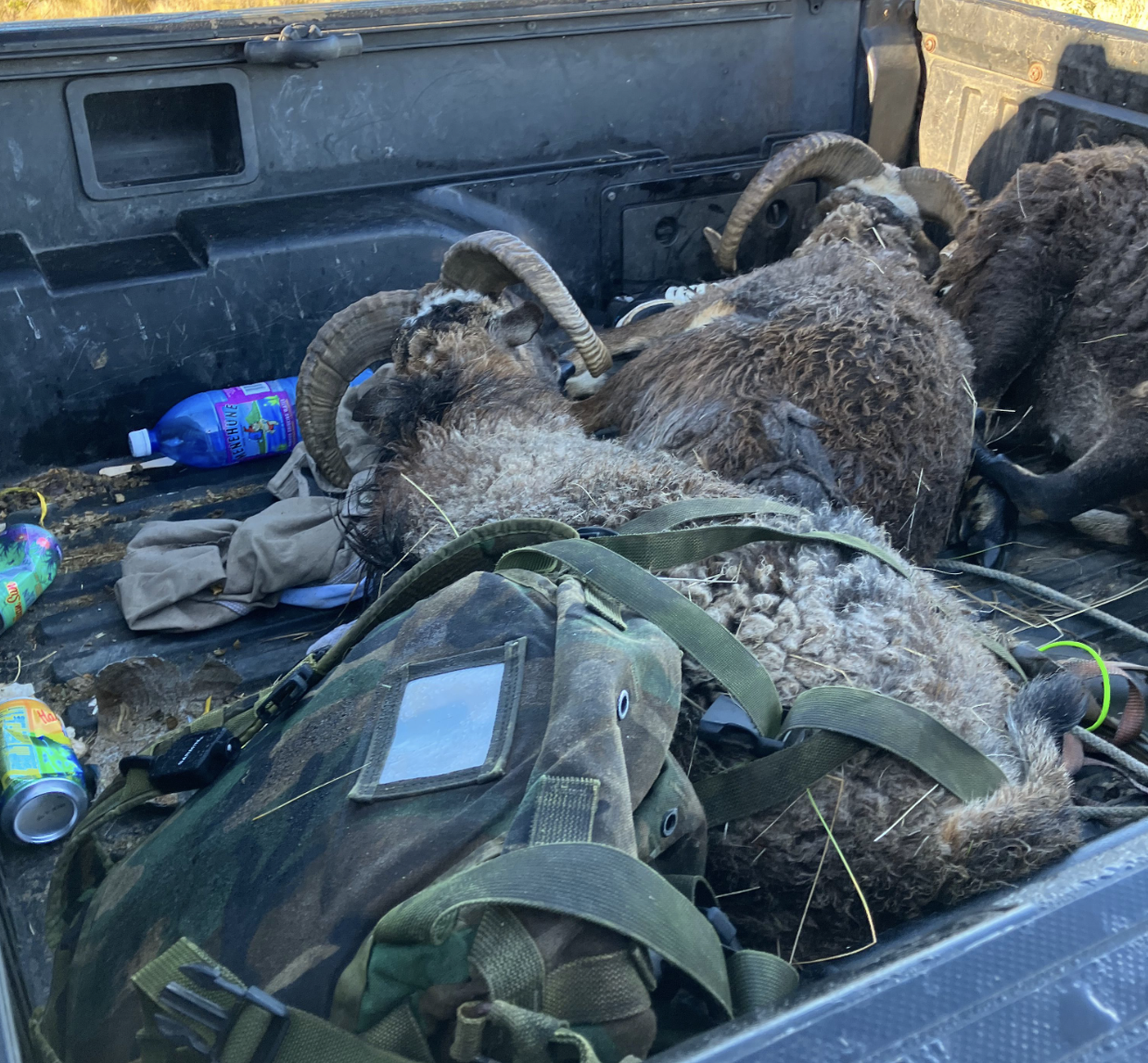Alleged sheep poachers were cited on Hawaiʻi island by alert officers from the DLNR Division of Conservation and Resources Enforcement (DOCARE). Being in the right place at the right time paid off for a pair of DOCARE officers last Thursday morning.
While traveling on Daniel K. Inouye Highway (Route 200/Saddle Road) at 4:30 a.m. officers encountered a pair of men and found they were in possession of three live, male sheep and were unable to produce a valid hunting license.
18-year-old Kodee K. Menino of Kea‘au was cited for Civil Resource Violation System (CRVS) hunting license, hunting hours, and removal of live animals’ violations. He was fined a total of $850 for the violations.
18-year-old Vito J. Ulufale of Waiʻanae, O‘ahu received CRVS citations for hunting license and hunting hour violations. He was fined $350 for the violations.
Both men were stopped within the Pōhakuloa Military Training Area (PTA) bordering the Pu‘uanahulu Game Management Area. Officers are investigating the involvement of two additional men, including one who was taken to the hospital later in the day after running into the bush and suffering a medical emergency.
Forty-five minutes later officers spotted another truck parked alongside the highway at PTA. This truck was carrying 12 male sheep, and one female sheep. It does not appear the two groups were poaching together.
A trio of men in the second truck received CRVS citations for hunting license and hunting hours violations with fines of $350 each.
- Simon P.P. Whippy, Age 43 of Honoka‘a
- Wyllen James K. Takaki, Age 20 of Kamuela
- Joseph K. Marquiz, Age 24 of Kapa‘au
All 16 sheep were freed and returned to the wild.
This is the second time, since its introduction this fall, Hawai‘i Island DOCARE officers have employed the CRVS. It allows officers to immediately fine people for resource violations and avoids both suspects and officers from having to go to court.
DOCARE Chief Jason Redulla commented, “CRVS is an efficient and immediate way for our officers to deal with natural and cultural resource violations. These cases also point to the value of our officers always being vigilant when they spot anything that looks out of place.”
Individuals cited under CRVS can contest the charges to DLNR and a hearing officer can adjudicate cases. They can also ask to have the Board of Land and Natural Resources (BLNR) have a contested case hearing. In those instances, the BLNR does not have to follow the CRVS fine schedule and can impose higher fines up to the statutory limits for each violation.


